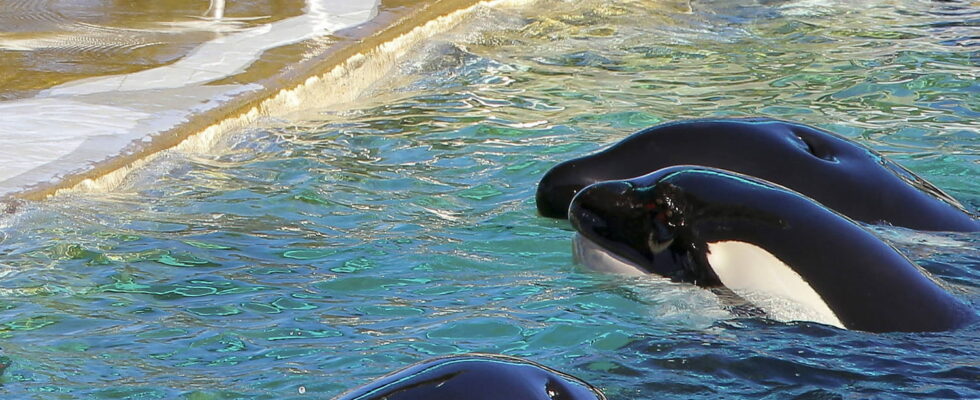Marineland is in its final hours and questions persist about the future of the orcas. Where will they go? How will they be treated? Under what transfer conditions? The Minister of Ecological Transition provides some answers.
Marineland will close its doors for good on January 5, after 55 years of existence. The reason: law of November 30, 2021 aimed at combating animal abuse and strengthening the bond between animals and humans. This provides that “shows including the participation of cetacean specimens and direct contact between cetaceans and the public are prohibited”. We must therefore find a solution for the 4,000 animals in the park. If sanctuaries already exist for dolphins and seals, and smaller animals, such as otters or penguins, can be accommodated in other establishments, the situation for the two orcas is difficult.
Indeed, no sanctuary exists for these sea giants and they are not capable of living alone in freedom. These two orcas have never known anything other than captivity. The Marineland park therefore expressed its desire to have Wikie and Keijo transferred to a similar park in Kobe, Japan, where cetacean shows are still authorized. But the Minister of Ecological Transition, Agnès Pannier-Runacher, said no. The living conditions of these animals would have been too bad, explains the minister: “The refusal was notified to Marineland on December 18,” she confides to Parisian. In addition, the transport conditions would have been too bad: “The transport distance to Japan was also unreasonable given the trauma that this would have caused to the orcas.”
What solution?
But then, where will Wikie and Keijo go? As Marineland owns these animals, it is the only one who can decide their future. The Minister of Ecological Transition will only be able to refuse transfers to similar parks abroad. “Marineland is working on a solution that we will study when it is ready. The priority is to prioritize the well-being of Wikie and Keijo, that they tolerate their displacement and to ensure that their state of health does not deteriorate” .
However, a solution exists and is being pushed by animal rights associations, but it would be less lucrative for the park, which is closing for economic reasons caused by the 2021 law. BFMTV Muriel Arnal, representative of the animal rights association “One Voice”, there is “an arm of the sea closed by nets”, a space “very vast, several hectares, with 24-hour care for the orcas, veterinary care and food throughout their lives”, in Canada. It remains to be seen whether Marineland will turn to this option or not.
The worrying state of health of orcas in captivity
If the fate of orcas is so worrying, it is because of their particularly poor state of health in captivity. As Christine Grandjean, president of the association “It’s enough!”, confided to our colleagues at World in 2015, “in a natural environment, an orca travels 150 to 200 kilometers per day” and these animals, several meters long, live in tanks of around a hundred meters in captivity.
This confinement has already caused psychological distress in certain individuals in parks around the world, which led to violent behavior for Tilikum, involved in the deaths of three people at SeaWorld, the American equivalent of Marineland, in 1991 , 1999 and 2010. We can also notice the psychological distress in these animals in their dorsal fin. In good health, it stands up and is clearly visible on the surface of the water, but it sags when the animals live in poor conditions. Their physical health is also in question, with two orcas dying in less than five months in the Antibes basins last year.
Wikie’s parents, Sharkane and Kim II, were captured off the coast of Iceland before being taken to the Antibes park, before the ban on cetacean capture in Europe in the 1980s. They gave birth to Wikie, 23 years old, and Inouk, before dying in the waters of the pools. It was then Inouk who died at the age of 22 on March 28, 2024. In the wild, an orca lives between 50 and 90 years. Keijo is Wikie’s youngest son, aged 11. These sociable animals, as confirmed by a study published in 2021 in the journal Proceedings of the Royal Societytherefore only live in pairs in small pools
